Corporate governance
The Chief Justice, assisted by the Chief Executive Officer (CEO) and Principal Registrar, is responsible for managing the administrative affairs of the Court.
Under the Constitution, judicial power is vested in judges who administer that power in court. The Family Law Act 1975 (Cth) states that the Court shall consist of a Chief Justice, a Deputy Chief Justice and senior judges and other judges. By delegation from the Chief Justice, case management judges assist in administering judicial functions in particular areas, such as case management. The judges’ committee structure facilitates collegiate involvement of the judges of the Court.
The Family Court is autonomously governed; that is, the Chief Justice has the responsibility for the administration of the Court. To enable the effective and efficient administration of justice, the judiciary needs support to deal with its workload. Non-judicial court employees, who are public servants, provide that support. In addition, there are arrangements in place with other courts for the supply of services.
The CEO and Principal Registrar is subject to directions from the Chief Justice. The agency head under the Public Service Act 1999 is the CEO and Principal Registrar of the Federal Court of Australia (Federal Court).

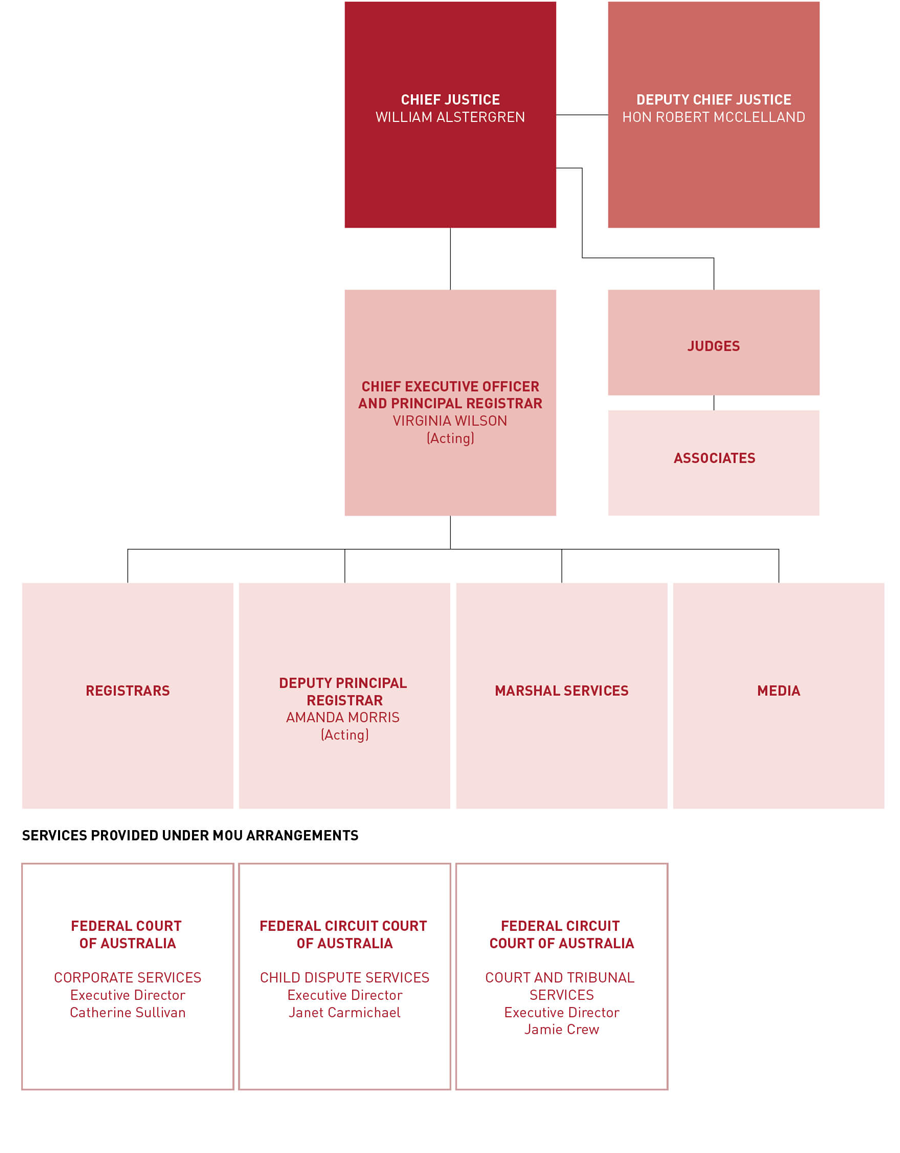
Judicial officers
At 30 June 2019, there were 34 judicial positions in the Court, including the Chief Justice and Deputy Chief Justice.

Chief Justice
The Chief Justice is responsible for ensuring the effective, orderly and expeditious discharge of the business of the Court (s 21B Family Law Act) and for managing its administrative affairs (s 38A). The Chief Justice is assisted in judicial responsibilities by the Deputy Chief Justice (s 21B) and in administrative responsibilities by the CEO and Principal Registrar (s 38B). The Chief Justice’s chambers are located in the Melbourne registry. The Honourable William Alstergren was appointed Chief Justice of the Family Court on 10 December 2018.
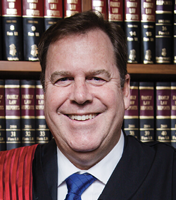
Deputy Chief Justice
The Deputy Chief Justice assists the Chief Justice in the judicial administration of the Court. Particular responsibilities include case management, complaints about judges, the collection and strategic assessment of statistics, pastoral care and oversight of the Court’s committees. In the absence of the Chief Justice, the Deputy Chief Justice performs and exercises the powers of the Chief Justice (s 24). Deputy Chief Justice Robert McClelland was appointed on 10 December 2018.
Judges assigned to the Appeal Division – 30 June 2019
|
Judge |
Appointed to the Appeal Division |
|---|---|
|
The Honourable Chief Justice William Alstergren |
10 December 2018 |
|
The Honourable Deputy Chief Justice Robert McClelland |
10 December 2018 |
|
The Honourable Justice Steven Andrew Strickland |
14 December 2009 |
|
The Honourable Justice Ann Margaret Ainslie-Wallace |
9 July 2010 |
|
The Honourable Justice Judith Maureen Ryan |
27 September 2012 |
|
The Honourable Justice Murray Robert Aldridge |
12 March 2015 |
|
The Honourable Justice Michael Patrick Kent |
10 December 2015 |
|
The Honourable Justice Garry Allan Watts |
21 June 2018 |
|
The Honourable Justice Stewart Craig Austin |
21 June 2018 |
|
The Honourable Justice Peter William Tree |
22 March 2019 |
Family Court of Australia Judges – 30 June 2019
|
Adelaide |
Appointed |
|---|---|
|
The Honourable Justice Steven Andrew Strickland |
22 November 1999 |
|
The Honourable Justice David Michael Berman |
18 July 2013 |
|
The Honourable Justice Christine Mead |
25 March 2019 |
|
Brisbane |
Appointed |
|
The Honourable Justice Colin James Forrest |
1 February 2011 |
|
The Honourable Justice Michael Patrick Kent |
12 July 2011 |
|
The Honourable Justice Jenny Deyell Hogan |
14 January 2013 |
|
The Honourable Justice Catherine Carew |
7 March 2016 |
|
The Honourable Justice Michael Baumann AM |
11 January 2018 |
|
Canberra |
Appointed |
|
The Honourable Justice Shane Leslie Gill |
16 May 2016 |
|
Hobart |
Appointed |
|
The Honourable Justice Robert James Charles Benjamin AM |
19 August 2005 |
|
Melbourne |
Appointed |
|
The Honourable Chief Justice William Alstergren |
13 October 2017 |
|
The Honourable Justice Victoria Jane Bennett AO |
30 November 2005 |
|
The Honourable Justice Kirsty Marion Macmillan |
14 December 2011 |
|
The Honourable Justice Sharon Louise Johns |
29 July 2013 |
|
The Honourable Justice Jillian Williams |
8 February 2019 |
|
The Honourable Justice Joshua Wilson |
11 March 2019 |
|
The Honourable Justice Norah Hartnett |
25 March 2019 |
|
The Honourable Justice Timothy McEvoy |
27 March 2019 |
|
Newcastle |
Appointed |
|
The Honourable Justice Stewart Craig Austin |
13 July 2009 |
|
The Honourable Justice Margaret Ann Cleary |
8 July 2010 |
|
Parramatta |
Appointed |
|
The Honourable Justice Garry Frederick Foster |
8 August 2013 |
|
The Honourable Justice Hilary Rae Hannam |
13 August 2013 |
|
Sydney |
Appointed |
|
The Honourable Deputy Chief Justice Robert Bruce McClelland |
16 June 2015 |
|
The Honourable Justice Ann Margaret Ainslie-Wallace |
9 July 2010 |
|
The Honourable Justice Judith Maureen Ryan |
31 July 2006 |
|
The Honourable Justice Murray Robert Aldridge |
13 December 2012 |
|
The Honourable Justice Janine Patricia Hazelwood Stevenson |
18 May 2001 |
|
The Honourable Justice Garry Allan Watts |
14 April 2005 |
|
The Honourable Justice William Philip Johnston |
12 July 2010 |
|
The Honourable Justice Ian James Loughnan |
12 July 2010 |
|
The Honourable Justice Judith Anne Rees |
15 December 2011 |
|
The Honourable Justice Louise Henderson |
8 February 2019 |
|
The Honourable Justice Robert Harper |
11 March 2019 |
|
Townsville |
Appointed |
|
The Honourable Justice Peter William Tree |
14 January 2013 |
Family Court of Western Australia
The following judges of the Family Court of Western Australia also hold commissions in the Family Court of Australia.
|
Judge |
Date of Family Court commission |
|---|---|
|
Chief Judge The Honourable Justice Gail Sutherland |
16 March 2018 |
|
The Honourable Justice Simon Moncrieff |
31 August 2009 |
|
The Honourable Justice Susan Janet Duncanson |
6 December 2012 |
|
The Honourable Justice Richard O’Brien |
12 April 2016 |
|
The Honourable Justice Ciara Tyson |
22 February 2019 |
Judges appointed to the Administrative Appeals Tribunal
The Honourable Justice Janine Stevenson
The Honourable Justice Victoria Bennett AO
The Honourable Justice Colin Forrest
The Honourable Justice David Berman
The Honourable Justice Robert James Charles Benjamin AM
Appointments and retirements
Judicial officer appointments
There were 10 appointments to the Court in 2018–19:

The Honourable Chief Justice William Alstergren was appointed on 10 December 2018.


The Honourable Deputy Chief Justice Robert McClelland was appointed on 10 December 2018.
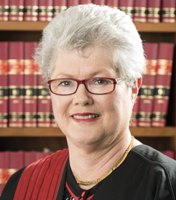
The Honourable Justice Louise Henderson was appointed on 8 February 2019.

The Honourable Justice Jillian Williams was appointed on 8 February 2019.

The Honourable Justice Ciara Tyson (FCWA) received a dual commission on 22 February 2019.

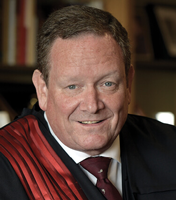
The Honourable Justice Joshua Wilson was appointed on 11 March 2019.
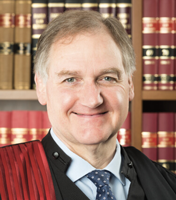
The Honourable Justice Robert Harper was appointed on 11 March 2019.
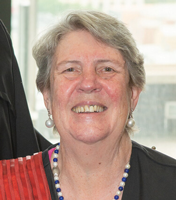
The Honourable Justice Christine Mead was appointed on 25 March 2019.
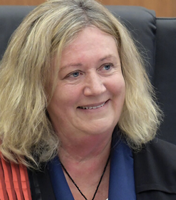
The Honourable Justice Norah Hartnett was appointed on 25 March 2019.

The Honourable Justice Timothy McEvoy was appointed on 27 March 2019.
Judicial officer retirements
There were six retirements from the Court in 2018–19:
- The Honourable Justice Mark Le Poer Trench retired on 21 November 2018.
- Chief Justice John Pascoe AC CVO retired on 10 December 2018.
- The Honourable Justice Christine Thornton retired on 14 December 2018.
- The Honourable Justice Jenny Coate retired on 8 February 2019.
- The Honourable Justice Paul Cronin retired on 18 April 2019.
- The Honourable Justice Peter Murphy retired on 1 May 2019.
Senior executives

Chief Executive Officer and Principal Registrar
The CEO and Principal Registrar is appointed to assist the Chief Justice to administer the Court. The CEO and Principal Registrar’s powers are broad (s 38D Family Law Act 1975), although subject to directions from the Chief Justice (s 38D(3)). Virginia Wilson was appointed acting CEO and Principal Registrar on 1 April 2019.

Senior Registrar
This is the most senior quasi-judicial position in the Court and has been held by John FitzGibbon since 1999. John sits in court full-time, hearing and determining cases in both parenting and financial proceedings. Most of his court work concerns urgent and interim parenting applications, including all of Victoria’s Magellan cases involving serious allegations of child physical abuse and child sexual abuse and family violence. He assumed that responsibility in 2011 at the request of the Chief Justice. John is also a member of the Rules Committee and is regularly sought to assist in training lawyers.

Deputy Principal Registrar
The Deputy Principal Registrar is responsible for providing legal, policy and procedural advice and support to the Chief Justice, the CEO and Principal Registrar and the staff of the Court. Other responsibilities include the handling of complaints, managing compliance with privacy and freedom of information legislation and support to a number of judicial committees. Amanda Morris has been acting in this position since 16 April 2019.
Judicial committees
Policy Advisory Committee
At the strategic level, this committee is the peak policymaking body within the Court. The committee’s role is to support the Chief Justice in the administration of the Court and to provide strategic advice and policy direction, particularly in relation to legislative, procedural and administrative changes likely to affect the Court and its users.
As at 30 June 2019 members of the Policy Advisory Committee were:
- The Honourable Chief Justice William Alstergren (Chair)
- The Honourable Deputy Chief Justice Robert McClelland
- The Honourable Justice Stewart Austin
- The Honourable Justice Janine Stevenson
- The Honourable Justice Robert Benjamin AM
- The Honourable Justice Kirsty Macmillan
- The Honourable Justice Shane Gill
- The Honourable Justice Michael Baumann AM
- The Honourable Justice Jillian Williams, and
- Acting CEO and Principal Registrar Virginia Wilson.
Finance Committee
The Finance Committee’s principal focus is to:
- consider and define the full cost and budgetary requirements of the Family Court
- consider spending and budgetary priorities that affect core judicial work
- discuss budgetary priorities and the allocation of financial resources
- consider the budgetary requirements of the Court following the changes to the administration of the Family Court pursuant to the Public Governance, Performance and Accountability Act 2013, and
- ensure transparency in respect of expenditure and the setting of budgetary priorities that affect core judicial work.
The Finance Committee is chaired by Justice Benjamin and includes Justice Watts and Justice Austin.
Rules Committee
The Rules Committee is established in contemplation of s 123 of the Family Law Act 1975 (Cth), which provides that a majority of judges may make rules of court in relation to practices and procedures to be followed in the Court. The Rules Committee considers proposed changes to the Family Law Rules 2004 (Cth) with a view to improving the efficiency, accessibility and cost effectiveness of the Family Court for its clients. The committee also undertakes detailed consideration of discrete issues as required.
Court Performance Committee
The Court Performance Committee is chaired by Deputy Chief Justice McClelland and its membership comprises all registry case management and Magellan judges.
Case management
The principles devised in 2015 to guide the operation of the Court’s ‘trial docket’ system of case management have been implemented in all registries, enhancing consistency across the Court in the way it manages its case-flow. The system envisages that only those cases that cannot be consensually resolved by intervention of registrars are allocated to judicial dockets for procedural management by judges to final trial.
Magellan
The Magellan protocol is a discrete case management pathway designed to ensure that cases involving allegations of sexual abuse or serious physical abuse of children are heard within six months of such allegations being raised in the litigation before the Court. Due to the increasing vigilance of the registry Magellan teams, cases are not categorised so easily as ‘Magellan’, which means the truly deserving cases are getting closer and faster attention. As at 30 June 2019, there were 131 active Magellan cases.
Judicial Education and Professional Development Committee
The aim of the Judicial Education and Professional Development Committee is to develop, implement and oversee judicial education in the Court by formulating a comprehensive plan for ongoing and extensive judicial education and to provide advice to the Chief Justice on judicial education issues.
The committee, chaired by Justice Macmillan, assists the Chief Justice in the dissemination of information His Honour considers should be brought to the attention of the judges. The committee also develops education programs and puts in place mechanisms to support judges to maintain resilience and to provide orientation for new appointments.
Activities were conducted as part of the annual judge’s conference on 28–29 November 2018.
Judicial Welfare Committee
The aim of the Judicial Welfare Committee is to develop and implement judicial wellbeing initiatives in the Court and to provide advice to the Chief Justice on judicial wellbeing issues. The committee is chaired by Justice Gill and includes Justices Macmillan, Forrest and Stevenson.
Justice Gill was invited by the Judicial College of Victoria to participate in their peer support training programme on 27–28 June 2019. His Honour also commenced a collaborative process with the Australian National University for the development of a longitudinal judicial wellbeing approach.
Work of the sub-committees
Children’s Committee
The Children’s Committee, a joint initiative between the Family Court and the Federal Circuit Court, meets regularly to explore the work to be undertaken with respect to the involvement of children in parenting proceedings and improving the experiences of children in the family law system. The committee has established and is building links with the Australian Children’s Contact Services Association.
Membership for 2018–19 included:
- Judge Cole OAM (Federal Circuit Court)
- Justice Moncrieff (Family Court of Western Australia)
- Justice Benjamin AM (Family Court)
- Janet Carmichael (Federal Circuit Court)
- Kylie Beckhouse (Legal Aid New South Wales)
- Alexandra Wearne (Independent Children’s Lawyer, New South Wales)
- Kate Bint (Independent Children’s Lawyer, Queensland), and
- Brigid Jenkins (Victoria Legal Aid).
During the year, the Children’s Committee, together with the Family Law Section of the Attorney-General’s Department, arranged a national conference for Independent Children’s Lawyers (ICLs). This conference was held in October 2018 and provided a valuable national conversation and information exchange between ICLs from around Australia. Other initiatives include a pilot Young Person’s Board in South Australia and an online survey of young persons aged between 13 and 18 as a joint project between the University of Sydney and Kids Helpline.
Aboriginal and Torres Strait Islander Outreach Committee
The Aboriginal and Torres Strait Islander Outreach Committee continues the long history of the Court in promoting and improving access to justice for Indigenous families, by ensuring the Court’s administration and judiciary work together to enable and facilitate the participation of Indigenous Australians in the Court’s operations and processes.
The committee continues to undertake work to:
- develop a court protocol for Acknowledgement of Country at court events
- examine the potential for a resource of information relevant to Aboriginal and Torres Strait Islander outreach issues to be available for general access
- establish and build a link between the Court’s registries and local Indigenous leaders, and
- collaborate with the Family Court of Western Australia, the Federal Circuit Court, state courts and tribunals, the National Judicial College and relevant state judicial education authorities such as the Judicial Commission of New South Wales.
The Reconciliation Action Plan for the Family Court was officially launched in July 2018. This Plan commits the Court to continue working with Aboriginal and Torres Strait Islander peoples to overcome the multiple barriers they face when trying to access the Court, including literacy and language barriers, a lack of understanding about the family law system and a lack of service access for communities in regional and remote areas.
Family Violence Committee
The Family Violence Committee is a joint committee of the Family Court and the Federal Circuit Court. The committee’s principal responsibility is to provide advice to the Chief Justice, the Chief Judge and the CEO and Principal Registrar of both courts on the issue of family violence.
In discharging this responsibility, the committee reviews and updates the courts’ Family Violence Plan and Family Violence Best Practice Principles, as well as undertaking discrete projects.
Membership of the committee at 30 June 2019 was:
- Judge Hughes (Chair)
- Justice Ryan
- Justice Hannam
- Judge Spelleken
- Judge Terry
- Judge Bender
- Janet Carmichael
- Di Lojszczyk,
- Lisa O’Neill, and
- Melissa Buhagiar (Secretariat).
The committee’s major project was the continued work on the Family Violence Plan which forms part of the commitment both courts have made to addressing family violence, including the measures contained in the joint Family Violence Best Practice Principles. The Family Violence Plan was released on 15 April 2019, which refined and updated the Family Violence Plan 2014–16. It builds on the work undertaken by the Courts under the 2014–16 Plan.
Collaborative committees
Joint Costs Advisory Committee
The committee comprises representatives of the four federal courts: the High Court of Australia, the Federal Court, the Family Court and the Federal Circuit Court.
Membership as at 30 June 2019 was:
- Justice Benjamin AM, Family Court (Chair)
- Philippa Lynch, CEO and Principal Registrar, High Court of Australia
- John Mathieson, Deputy Principal Registrar, Federal Court
- Adele Byrne, Deputy Principal Registrar, Federal Circuit Court, and
- Virginia Wilson, Acting CEO and Principal Registrar, Family Court/ Federal Circuit Court.
Scales of costs
The current cost scales for each of the federal courts are provided for in the following legislation:
- High Court Rules 2004 Schedule 2
- Federal Court Rules 2011 Schedule 3
- Family Law Rules 2004 Schedule 3, and
- Federal Circuit Court Rules 2001 Schedule 1.
Joint Rules Harmonisation Working Group
The Rules Harmonisation Working Group is a joint committee of the Family Court and the Federal Circuit Court, comprising judges of both courts, responsible for developing a common set of rules, forms and case management in the courts.
The working group is chaired by the Honourable Dr Chris Jessup QC. Dr Jessup is also assisted by two barristers, Ms Emma Poole and Mr Christopher Lum. Members of the group are working closely with the judges to draft the common rules and forms and aid the development of a consistent approach to case management.
Members of the working group at 30 June 2019 included:
- Dr Chris Jessup QC (Chair)
- Chief Justice Alstergren
- Deputy Chief Justice McClelland (Family Court)
- Justice Ryan (Family Court)
- Justice Watts (Family Court)
- Justice Rees (Family Court)
- Justice Williams (Family Court)
- Justice Hartnett (Family Court)
- Judge Driver (Federal Circuit Court)
- Judge Hughes (Federal Circuit Court)
- Judge Harland (Federal Circuit Court)
- Virginia Wilson, and
- Jordan Di Carlo.
Information Publication Scheme
Entities subject to the Freedom of Information Act 1982 (FOI Act) are required to publish information to the public as part of the Information Publication Scheme. This requirement, in Part II of the FOI Act, has replaced the former requirement to publish a Section 8 statement in an annual report.
An agency plan showing what information is published in accordance with the Information Publication Scheme requirements is accessible from agency websites.
The Freedom of Information and the Information Publication Scheme agency plan for the Family Court can be found at www.familycourt.gov.au/wps/wcm/connect/fcoaweb/contact-us/freedom-of-information-and-information-publication-scheme/foi-ips-plan.
Access to information outside the Freedom of Information Act
Rule 24.13 of the Family Law Rules 2004 provides that a search of the Court’s records may be undertaken by the Attorney-General, a party, a lawyer for a party, a child representative, a child welfare authority if the case affects, or may affect, the welfare of a child, or a person granted leave by the Court or a registrar. Leave may be granted if a proper interest is shown and may be subject to conditions, or for a person researching the court record.
There are other legislative provisions that limit publication in various proceedings; for example, s 121 Family Law Act 1975. In addition, Part XIA of the Family Law Act 1975 gives the Court general power to suppress/prohibit publication of evidence.
Enquiries concerning access to documents or Freedom of Information matters generally should be directed to:
Chief Executive Officer and Principal Registrar
Family Court of Australia
GPO Box 9991
Adelaide SA 5001
or emailed to clientfeedback@familycourt.gov.au.
Further advice on making Freedom of Information requests may be obtained by calling 08 8219 1641.
The Court received six Freedom of Information requests during 2018–19. At 30 June 2019, there were no matters outstanding before the Administrative Appeals Tribunal.
Categories of documents
The Family Court registries maintain the following categories of documents on behalf of the Court:
- documents relating to matters heard by the Court including applications, affidavits, transcripts, orders and copies of judgments
- registers and indexes of matters coming to the Court, and
- general correspondence.
The Family Court maintains the following categories of documents:
- general correspondence
- documents concerning the development and implementation of policy, guidelines and procedures, and
- documents concerning the Court’s administrative operations.
Other documents
The Court holds and makes available on request a range of documents including brochures, fact sheets and general information leaflets. These are available on the Court’s website at www.familycourt.gov.au.
Privacy
The Court holds personal information for two purposes:
- to help resolve and, if necessary, determine matters before the Court (the judicial purpose), and/or
- to assist in administration (the administrative purpose).
Information used for judicial purposes is held in case files and the case management computer system. This information is exempt from the Privacy Act 1988 and Freedom of Information Act 1982. Other statutory provisions and non-publication powers of the Court, designed to protect parties and their children, are applicable to this information.
Information used for administrative purposes is collected as part of the day-to-day running of the Court. Many documents for administrative purposes are held by the Federal Court as the provider of the corporate services for the Court.
The Australian Government Agencies Privacy Code came into force on 1 July 2018. Agencies are required to take reasonable steps to implement practices, procedures and systems to ensure compliance with the code. Consistent with these requirements, the Court has the following in place:
- Privacy Management Plan 2018–19
- Privacy Impact Assessment Policy, and
- Data Breach Response Plan.
These documents can be accessed on the Court’s website at www.familycourt.gov.au/wps/wcm/connect/fcoaweb/contact-us/privacy/.
In addition, the Court has a designated Privacy Champion and Privacy Officer.
Feedback and service improvements
Feedback helps to drive service improvement and the Court invites feedback, including suggestions and complaints, about administrative matters such as privacy, security, a court policy, or the way correspondence has been handled.
Full details about feedback and complaints are contained in Part 3 of this report (Report on court performance), but in summary, in 2018–19, the Court received:
- 6 complaints about Family Court services
- 6 complaints arising from services provided by the Federal Circuit Court or other third parties and relating to Family Court matters
- 13 complaints about judicial conduct, and
- 6 complaints about the time taken in the delivery of a judgment.
External and internal scrutiny
Commonwealth Ombudsman
The Commonwealth Ombudsman made no adverse report specific to the Family Court during 2018–19.
Freedom of Information
The Court received six Freedom of Information requests during 2018–19.
Action in Defamation
There were no actions in defamation during 2018–19.
Senate estimates hearings – Legal and Constitutional Affairs Committee
Senior Executive Service staff of the Court attend estimates committee hearings to answer questions about the Court’s activities. In 2018–19, 12 questions on notice were received and answered by the Family Court.
Correction of errors in the 2017–18 annual report
There are no errors to report.